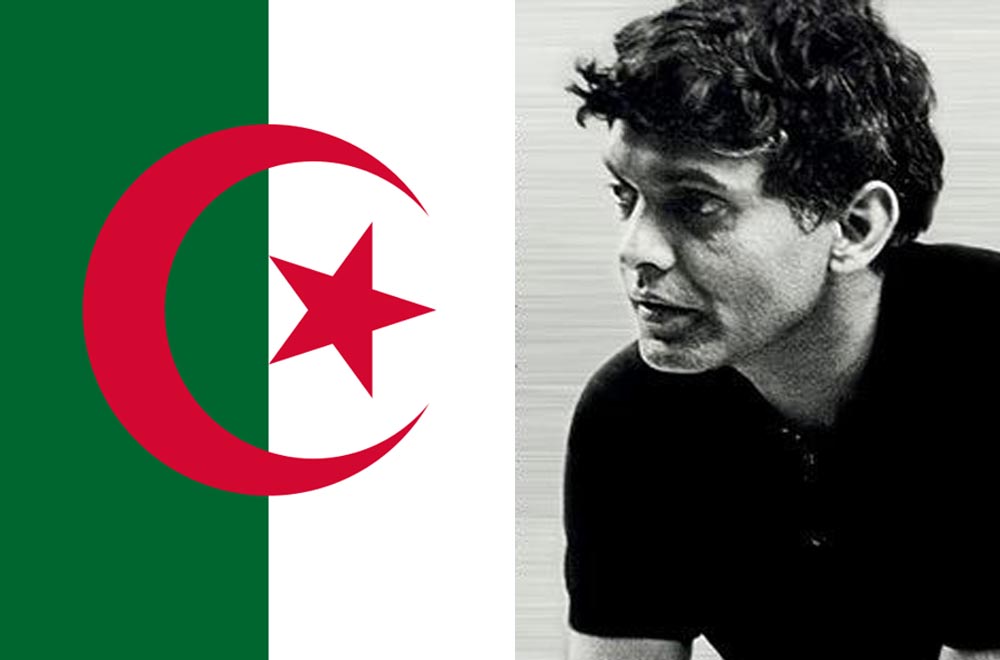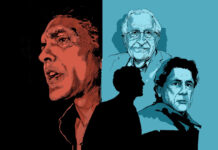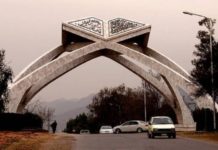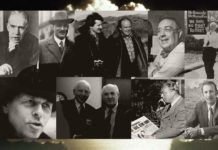Last week, at the invitation of the Ministry of Mujahideen, I attended five days of pomp and pageantry celebrating heroes of the Algerian War of Independence (1954-1962). Those remembered in the historic city of Algiers included a highly unusual ‘Friend of the Revolution’. That ‘Friend’ now rests in peace in Islamabad. Eqbal Ahmad is, to my knowledge, the sole Pakistani who fought to liberate Algeria from French rule.
Born in Bihar, Eqbal was a young boy when his family migrated to Pakistan in 1948. Soon after studying at Forman Christian College (Lahore) he won a scholarship for graduate studies at Princeton University. His PhD dissertation was formally a study of labour movements in North Africa but, in fact, he travelled there to fight French imperial rule. Through the struggle, he grew close to top leaders of Algeria’s FLN. In 1961, he was briefly arrested in Paris and beaten by the French police for supporting the rights of Algerian workers.
In those days, Algerian revolutionaries fleeing France’s police dragnet often sought exile in nearby Tunis. While living there Eqbal developed many close friendships. I recall his mentioning among others, Houari Boumedienne (later Algeria’s second president) and Ferhat Abbas (the head of state in exile). Appointed as a member of the Algerian Revolutionary Council, Eqbal was among those who researched the script of the Battle of Algiers, the classic film of the revolution. He was present while it was filmed.
According to his friend and biographer, Prof Stuart Schaar of CUNY (Brooklyn College), Eqbal frequently met with the revolutionary Belcasem Krim (assassinated in Frankfurt in 1970) and others. Through them he learned much about how they organised the uprising. But keeping alive the spirit of liberation was a still greater challenge.
Eqbal’s utterances of 50-60 years ago remain startlingly relevant in today’s troubled times.
The revolution was getting corrupted. Ben Bella, who later became Algeria’s first president, was cutting corners and using underhand methods to suppress political rivals. Schaar, who was then present, recalls that Eqbal was on the podium when he confronted Ben Bella — whom he had never met earlier — and, risking arrest, shouted that he had betrayed the revolution.
Upon returning to the US and submitting his PhD thesis in 1964, Eqbal maintained his connections with Algerian comrades. But this peripatetic had barely begun his journey. Eqbal’s closest friend, Edward Said (who died in 2003), described the rest wonderfully.
It was, Said wrote, “an epic and poetic one, full of wanderings, border crossings, and an almost instinctive attraction to liberation movements, movements of the oppressed and the persecuted, causes of people who were unfairly punished — whether they lived in the great metropolitan centres of Europe and America, or in the refugee camps, besieged cities, and bombed or disadvantaged villages of Bosnia, Chechnya, south Lebanon, Vietnam, Iraq, Iran and, of course, the Indian subcontinent”.
Counted among the very first opponents of America’s war in Vietnam, Eqbal gained national fame and notoriety for his brilliant writings and tactics. A nervous American government indicted him in a spectacular 1970 trial, along with the Berrigan brothers, of a conspiracy to kidnap Henry Kissinger and blow up the heating system of the Pentagon. In later years, Eqbal would relate with great gusto — often sending his listeners into fits of laughter — events surrounding the trial and the FBI’s futile attempts to nab him and his friends.
Ostracised by most of the American academic community for his passionate advocacy of Palestinian rights, Eqbal remained an itinerant professor at several US universities for much of his life. He recalled that his colleagues at Cornell University chose to stand elsewhere rather than sit with him at the same cafeteria table.
With a strong memory for events and people, an uncanny ability to quickly grasp the essence of a political situation, and a large circle of contacts that kept him informed, Eqbal achieved a reputation for prescience. Invited by Yasser Arafat to the Palestinian Council, he demurred. Instead, he bluntly warned Arafat in 1982 that firing Katyusha rockets from south Lebanon into Israel would achieve nothing beyond brutal Israeli retaliation. He was proved tragically correct.
Eqbal’s message to the Arabs was that they must learn to live with a democratised Israel, abandon exclusionary ideologies of Arab nationalism and Islamic extremism, and develop movements of mass resistance instead of terror tactics. Jerusalem as the capital of Israel was unacceptable but so was the control of all holy places by any one contender. An ancient heritage must be shared by Arab and Jew, and its protection should be a joint responsibility as well.
A lifelong involvement with Algeria, Palestine, Pakistan, and India, led Eqbal to a firm position on Muslim causes. Values, knowledge, aesthetics, and style, he said, was what had defined the Islamic civilisation and invested it with greatness. But those who glorify the past and seek to recreate it invariably fail while those who view it comprehensively and critically are able to draw on the past in meaningful and lasting ways.
In Pakistan, said Eqbal, Islam has been a convenient refuge for troubled and weak leaders. While the country suffers from a protracted crisis of leadership, promises of an ‘Islamic state’ serve to distract attention away from core issues.
To quote Noam Chomsky, another of Eqbal’s friends, Eqbal saw the postcolonial state as “a bad version of the colonial one”, with the same structure of “a centralised power, a paternalistic bureaucracy, and an alliance of the military and landed notables”. The new elite are the inheritors of the old: the propertied classes, the intelligentsia, the bourgeoisie that are “as heartless in its lack of concern for the poor, in some ways even more so, as the colonial state”.
When Eqbal Ahmad died on May 11, 1999, he was mourned across the continents from Algeria and Vietnam to the West Bank, from India and Pakistan to Europe and North America. Al-Ahram declared that Palestine has lost a friend, the Economist likened him to the Ibn Khaldun of modern times, and even the New York Times — with which he had a lifelong running battle — admitted that he had woken up America’s conscience. Eqbal, how we miss you in these troubled times.









